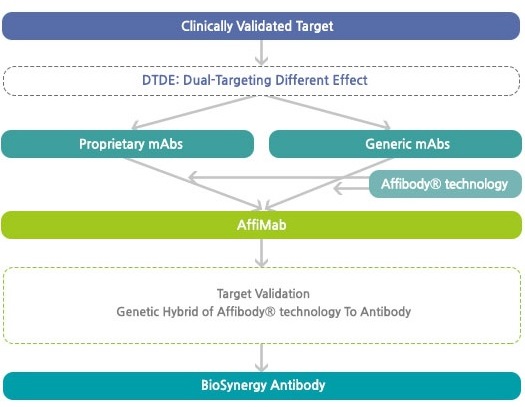AbClon, a developer of innovative antibody medicines, is likely to achieve robust sales growth with its platform's ability to expand pipelines, an analyst said.
AbClon is a midsize pharmaceutical firm, which posted 1.8 billion won ($1.58 million) in revenue and 700 million won operating loss in the first half. Industry watchers are paying attention to the company’s strategy to reduce risks of new drug development by utilizing its self-developed platform.
With the potential for the platform, the company’s stock price has risen 57 percent as of 11 a.m. Monday, compared to the closing price on the initial public offering (IPO) day of Sept. 18, 2078, on the KOSDAQ market. AbClon’s offering price was 10,000 won.

“The strongest point of AbClon’s platform, called NEST & AffiMab, is its potential to expand pipelines. This platform is useful for the discovery of the double antibody,” said Lim Dong-rak, an analyst at Hanyang Securities. “This means that the company can continue to expand pipelines, not being confined to a specific disease or a protein.”
Lim went on to say that the company was likely to raise sales by clenching a license-out deal at an early stage.
“Conventional antibody drugs are posting sales of several trillion won but are not fully effective. But AbClon is developing a new antibody treatment that has a distinctive efficacy. As the company is also anticipating the effect of combination therapy with existing antibody drugs, it is likely that the company will have more opportunities for an early license-out deal.”
AbClon’s platform allows for developing antibodies that bind to various parts of diseased proteins. As the market divides into treatable and untreatable patients, AbClon’s product could be the only treatment option in the conventional antibody drugs market, the company said.
Among the patents of AbClon, the patent on the antibody that specifically binds to VEGFR2 (registered in Korea on Sept. 4, 2018) and the patent on the antibody that specifically binds to HER2 (registered in Europe on Oct. 16, 2018) have been developed based on this platform.

